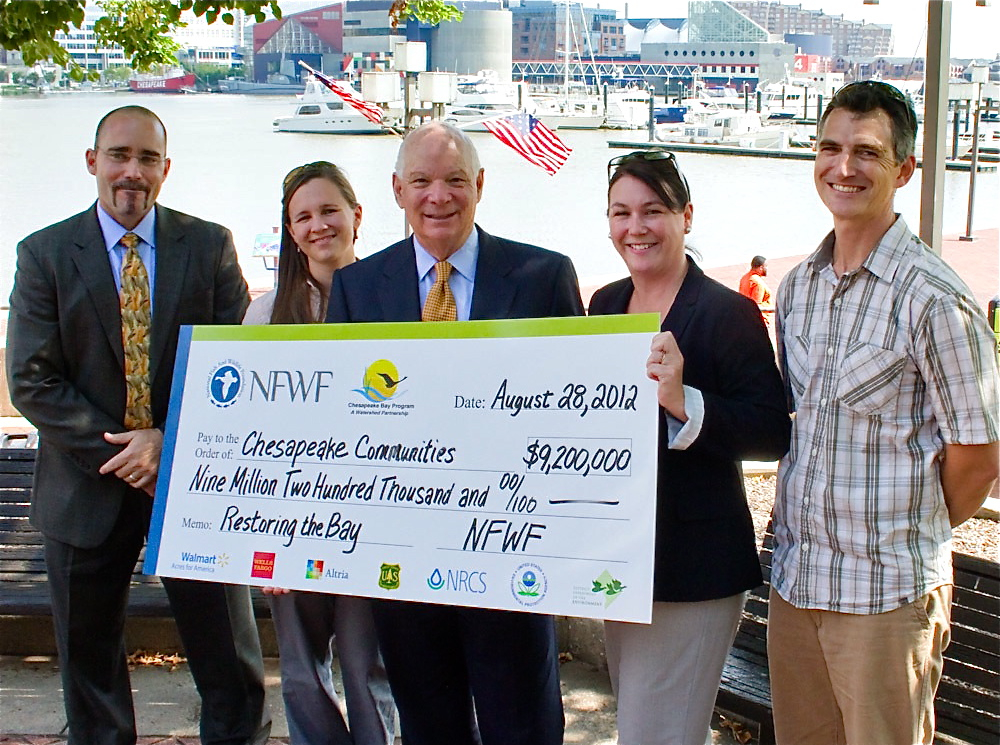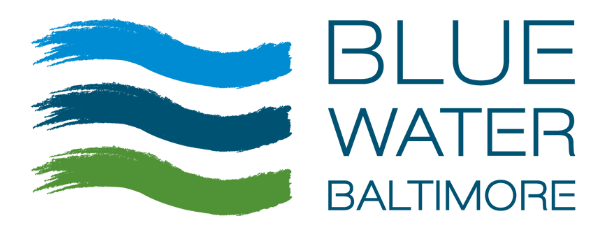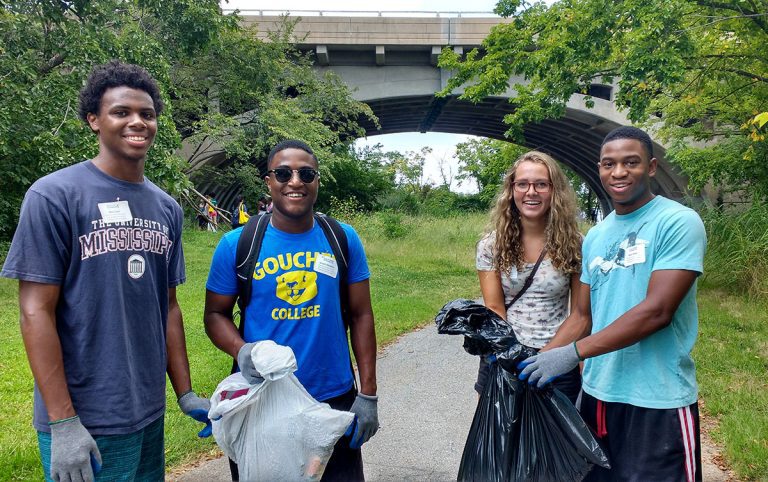Stormwater grant from National Fish & Wildlife Foundation will reduce residential water pollution
As a staff member who spends most of her time in front of a computer and out in the field assessing homes for runoff reduction opportunities yesterday was an exciting change of pace and more than a little bit rewarding.
I’ve spent the past three years working for Blue Water Baltimore (and the Jones Falls Watershed Association before that) to build and perfect a novel stormwater reduction incentive program. Our pioneering Water Audit Program, one of the few such incentive programs in the nation run by a private nonprofit group, has been well-received by residents of Baltimore: to date over 1,200 individuals have expressed interest in doing their part to reduce runoff from their homes, houses of worship, and schools. It’s been a very encouraging experience.

So it was genuinely exciting yesterday to stand with Blue Water Baltimore executive director, Halle Van der Gaag, and senior manager, at the Maryland Science Center as the National Fish and Wildlife Foundation announced a $400,000 Innovative Sediment and Nutrient Reduction grant.
Our Water Audit program has been successful in its first four years: the resulting projects have reduced the amount of runoff to the Harbor and Bay by over 2 million gallons per year. And thanks to this new grant, over the next two years we plan to do even better: reducing the annual stormwater runoff in our watersheds by over 8 million gallons. The grant will fund an expansion of the Water Audit program for two more years and, beginning in 2013, will bring exciting changes to the program, including the addition of an incentive for green roofs.
The development and expansion of our program would not have been possible without the support of the National Fish and Wildlife Foundation, US EPA Chesapeake Bay Program, US Senator Ben Cardin, and US EPA Senior Advisor Jeff Corbin. The dedication of these and many other stakeholders keeps us moving towards cleaner streams, a thriving Bay ecosystem, and most importantly, reducing the risks to public health that stem from polluted runoff.
What is exciting about this program is that it focuses directly on effective actions that residents can take in their own yards and communities.
Reducing the runoff from privately owned and managed property is one of the most challenging, but also important, opportunities we have as watershed stewards to protect and preserve our waterways. Check out our announcement for more details.
Want to find out how to do more on your property? Register today!

